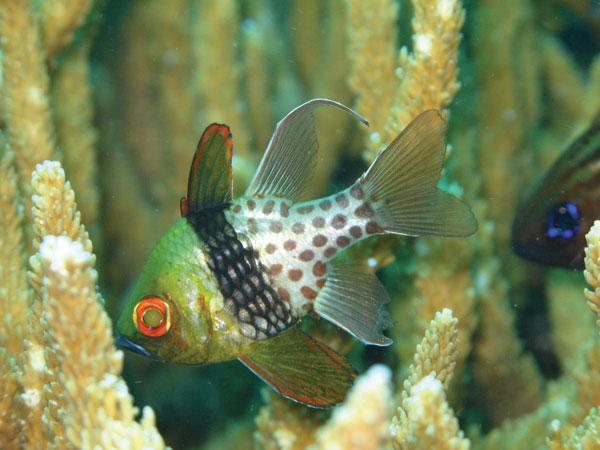
El Niño Killing Young Coral Reef Fish, Biologists Find

The unusually warm Pacific Ocean temperatures ushered in by El Niño can have a profound impact on the fish populations surrounding South Pacific coral reefs, a new study finds.
An international team of biologists studied the arrival of young fish to the coral atoll of Rangiroa in French Polynesia for four years and compared their results with satellite and oceanographic data. They found that the El Niño event caused a sudden collapse in the plankton community and this led to a near absence of the young fish required to replenish adult stocks.
Young coral reef fish aren't raised the way human children are: Rather than caring for their young, the adult fish disperse them into the open waters off the reef where they drift with the currents while they grow and develop into small juveniles, at which point they make their way back to the reef.
This process allows these baby fish to feed on plankton and escape the predators that would consume them if they had to grow up on the reef with adults. But in a changing climate, this dispersal into the haven of open water could now become an area of death for coral reef fishes.
The team of biologist counted the number of fish that returned to the reef from the open ocean over a period of time that included the intense 13-month El Niño event of 1997-1998.
"Near to the equator, fish arrive throughout the year to replenish adult populations. In contrast, during the El Niño event at Rangiroa, when temperatures climbed up to 3.5 degrees Celsius [6.3 degrees Fahrenheit] above the seasonal average, we found that the young fish virtually disappeared," said team member Steve Simpson of the University of Bristol in England.
"Analysis of satellite images around Rangiroa suggested that plankton, the food supply for many baby and adult reef fishes, declined dramatically during the warm waters of El Niño. As a consequence, adults struggled to produce offspring and young fishes were likely to starve when in open waters off reefs," Simpson added. "Just one to two months after the onset of the warm conditions, the next generation of young fish stopped arriving so that adult stocks were no longer being re-supplied."
Sign up for the Live Science daily newsletter now
Get the world’s most fascinating discoveries delivered straight to your inbox.
The findings, detailed in the journal Global Change Biology, are worrying, the study's authors said, given that climate change is also increasing ocean water temperatures and could increase the frequency of El Niño events.
"Coral reef fisheries provide food and livelihoods for hundreds of millions of people throughout the world and underpin a multibillion-dollar tourism industry, Simpson said. Our study shows that warmer waters may leave fish stocks on reefs in serious trouble, which will have far-reaching consequences for the people around the globe who are dependent upon them."










